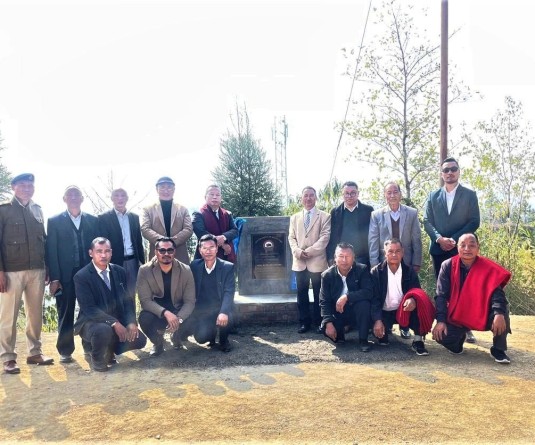
Mokokchung, May 4 (MExN): The Mokokchung Chamber of Commerce & Industry (MCCI) today launched an offensive against the state government as it reiterated its appeal to repeal the “economic policy blunder” in the form of a COVID-19 Cess on diesel and petrol immediately.
Earlier on April 30, the MCCI had issued a press release where it questioned the “surreptitious exploitation” of the common people by the state government. It demanded that the cess be repealed without delay.
In a press release on Monday, the MCCI upped the ante on its demand for repeal of the COVID-19 cess stating that “It is an economic policy blunder that has the potential to cause an unprecedented economic depression like we have never experienced in the history of Nagaland state.”
“Levying a hastily declared tax on tax under the given circumstances is the wrong approach to the problem at the wrong time. We assume that the government certainly has the common sense to foresee the possible negative economic ramifications caused by the lockdown and compounded by the cess,” the MCCI said in the release which was appended by its President and General Secretary.
Elucidating on the matter, the MCCI reasoned that with people already losing jobs, “there is widespread unemployment, businesses are unable to pay rent or pay their employees and an environment of financial stress and insecurity surrounds the common people.” The COVID-19 cess will compound the economic depression caused by the lockdown, inducing rapid inflation and higher cost of living making way for rise in the number of anti-social elements and a soaring crime rate, it stated.
“Rise in the cost of essential commodities, which is already happening, will be the first revelation. This will be followed by an abnormal price rise of all goods and services in the market because of the cess,” it reasoned, while adding that the vast majority of the common people will be severely hit by the impending economic crisis.
Further, on the revenue that the state government expects to rake in, it viewed that the government is “conveniently ignoring the resultant fact that the people with diminished purchasing power in the post lockdown economy abetted by the COVID-19 cess will be spending much lesser than before, which in turn would mean that the state receives a drastically lower revenue as state share of GST and other union duties from the central government.”
Terming it as an “economic policy blunder,” the MCCI further questioned the state government on if the decision to levy the cess was “a desperate attempt to save its skin by cajoling the union government for a bailout.”
“It is on record that the Chief Minister wrote to the union government on April 25 saying that the state was facing a financial crisis and sought for a ‘special dispensation’ or, in other words, a bailout. And then the cess was brought into effect three days later, an orchestrated distress signal to the union government – a reinvented begging bowl,” the release stated, adding that “The state government, while trying to save its skin, is gambling with the lives of the people.”
It further questioned if the Nagaland state government is making use of the COVID-19 pandemic not just as an excuse but also as an opportunity to seize a massive bailout from the union government, to “cover up the tracks of its years of failed leadership and misgovernance, and go scot free.”
“The fact that Nagaland is reeling under deficit is not because we have not been taxed enough; We are hundreds, if not thousands, of crores of rupees in debt because of poor leadership in the government leading to mismanagement, corruption, embezzlement and misappropriation of public funds,” it claimed.
Reiterating that the COVID-19 cess is “a mammoth economic policy blunder,” the MCCI stated that Nagaland needs a long-term realistic approach to “wiggle its way out of the fiscal fiasco.”
Repealing the COVID-19 cess on diesel and petrol is the starting point, it added as it issued a word of caution to the people of Nagaland of the “imminent economic crisis that is looming large over the Naga sky.” A crisis that will be far more precarious for us than the pandemic itself, it added.





.jpg)
